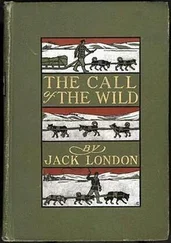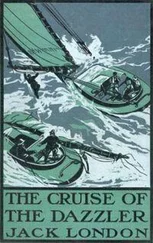Jack London - The Red One
Здесь есть возможность читать онлайн «Jack London - The Red One» весь текст электронной книги совершенно бесплатно (целиком полную версию без сокращений). В некоторых случаях можно слушать аудио, скачать через торрент в формате fb2 и присутствует краткое содержание. Жанр: Классическая проза, на английском языке. Описание произведения, (предисловие) а так же отзывы посетителей доступны на портале библиотеки ЛибКат.
- Название:The Red One
- Автор:
- Жанр:
- Год:неизвестен
- ISBN:нет данных
- Рейтинг книги:4 / 5. Голосов: 1
-
Избранное:Добавить в избранное
- Отзывы:
-
Ваша оценка:
- 80
- 1
- 2
- 3
- 4
- 5
The Red One: краткое содержание, описание и аннотация
Предлагаем к чтению аннотацию, описание, краткое содержание или предисловие (зависит от того, что написал сам автор книги «The Red One»). Если вы не нашли необходимую информацию о книге — напишите в комментариях, мы постараемся отыскать её.
The Red One — читать онлайн бесплатно полную книгу (весь текст) целиком
Ниже представлен текст книги, разбитый по страницам. Система сохранения места последней прочитанной страницы, позволяет с удобством читать онлайн бесплатно книгу «The Red One», без необходимости каждый раз заново искать на чём Вы остановились. Поставьте закладку, и сможете в любой момент перейти на страницу, на которой закончили чтение.
Интервал:
Закладка:
He completed the sentence and the tale by burying his face in the down-tilted mouth of the condensed milk can and by gurgling the corrosive drink down his throat in thirsty gulps.
After an appropriate pause, Chauncey Delarouse, otherwise Whiskers, took up the tale.
“Far be it from me to boast of no matter what place of birth I have descended from to sit here by this fire with such as… as chance along. I may say, however, that I, too, was once a considerable figure of a man. I may add that it was horses, plus parents too indulgent, that exiled me out over the world. I may still wonder to query: ‘Are Dover ’s cliffs still white?’”
“Huh!” Bruce Cadogan Cavendish sneered. “Next you’ll be asking: ‘How fares the old Lord Warden?’”
“And I took every liberty, and vainly, with a constitution that was iron,” Whiskers hurried on. “Here I am with my three score and ten behind me, and back on that long road have I buried many a youngster that was as rare and devilish as I, but who could not stand the pace. I knew the worst too young. And now I know the worst too old. But there was a time, alas all too short, when I knew, the best.
“I, too, kiss my hand to the Princess of my heart. She was truly a princess, Polynesian, a thousand miles and more away to the eastward and the south from Delaney’s Isle of Love. The natives of all around that part of the South Seas called it the Jolly Island. Their own name, the name of the people who dwelt thereon, translates delicately and justly into ‘The Island of Tranquil Laughter.’ On the chart you will find the erroneous name given to it by the old navigators to be Manatomana. The seafaring gentry the round ocean around called it the Adamless Eden. And the missionaries for a time called it God’s Witness - so great had been their success at converting the inhabitants. As for me, it was, and ever shall be, Paradise.
“It was my Paradise, for it was there my Princess lived. John Asibeli Tungi was king. He was full-blooded native, descended out of the oldest and highest chief-stock that traced back to Manua which was the primeval sea home of the race. Also was he known as John the Apostate. He lived a long life and apostasized frequently. First converted by the Catholics, he threw down the idols, broke the tabus, cleaned out the native priests, executed a few of the recalcitrant ones, and sent all his subjects to church.
“Next he fell for the traders, who developed in him a champagne thirst, and he shipped off the Catholic priests to New Zealand. The great majority of his subjects always followed his lead, and, having no religion at all, ensued the time of the Great Licentiousness, when by all South Seas missionaries his island, in sermons, was spoken of as Babylon.
“But the traders ruined his digestion with too much champagne, and after several years he fell for the Gospel according to the Methodists, sent his people to church, and cleaned up the beach and the trading crowd so spick and span that he would not permit them to smoke a pipe out of doors on Sunday, and, fined one of the chief traders one hundred gold sovereigns for washing his schooner’s decks on the Sabbath morn.
“That was the time of the Blue Laws, but perhaps it was too rigorous for King John. Off he packed the Methodists, one fine day, exiled several hundred of his people to Samoa for sticking to Methodism, and, of all things, invented a religion of his own, with himself the figure-head of worship. In this he was aided and abetted by a renegade Fijian. This lasted five years. Maybe he grew tired of being God, or maybe it was because the Fijian decamped with the six thousand pounds in the royal treasury; but at any rate the Second Reformed Wesleyans got him, and his entire kingdom went Wesleyan. The pioneer Wesleyan missionary he actually made prime minister, and what he did to the trading crowd was a caution. Why, in the end, King John’s kingdom was blacklisted and boycotted by the traders till the revenues diminished to zero, the people went bankrupt, and King John couldn’t borrow a shilling from his most powerful chief.
“By this time he was getting old, and philosophic, and tolerant, and spiritually atavistic. He fired out the Second Reformed Wesleyans, called back the exiles from Samoa, invited in the traders, held a general love-feast, took the lid off, proclaimed religious liberty and high tariff, and as for himself went back to the worship of his ancestors, dug up the idols, reinstated a few octogenarian priests, and observed the tabus. All of which was lovely for the traders, and prosperity reigned. Of course, most of his subjects followed him back into heathen worship. Yet quite a sprinkling of Catholics, Methodists and Wesleyans remained true to their beliefs and managed to maintain a few squalid, one-horse churches. But King John didn’t mind, any more than did he the high times of the traders along the beach. Everything went, so long as the taxes were paid. Even when his wife, Queen Mamare, elected to become a Baptist, and invited in a little, weazened, sweet-spirited, club-footed Baptist missionary, King John did not object. All he insisted on was that these wandering religions should be self-supporting and not feed a pennyworth’s out of the royal coffers.
“And now the threads of my recital draw together in the paragon of female exquisiteness - my Princess.”
Whiskers paused, placed carefully on the ground his half-full condensed milk can with which he had been absently toying, and kissed the fingers of his one hand audibly aloft.
“She was the daughter of Queen Mamare. She was the woman wonderful. Unlike the Diana type of Polynesian, she was almost ethereal. She was ethereal, sublimated by purity, as shy and modest as a violet, as fragile-slender as a lily, and her eyes, luminous and shrinking tender, were as asphodels on the sward of heaven. She was all flower, and fire, and dew. Hers was the sweetness of the mountain rose, the gentleness of the dove. And she was all of good as well as all of beauty, devout in her belief in her mother’s worship, which was the worship introduced by Ebenezer Naismith, the Baptist missionary. But make no mistake. She was no mere sweet spirit ripe for the bosom of Abraham. All of exquisite deliciousness of woman was she. She was woman, all woman, to the last sensitive quivering atom of her -
“And I? I was a wastrel of the beach. The wildest was not so wild as I, the keenest not so keen, of all that wild, keen trading crowd. It was esteemed I played the stiffest hand of poker. I was the only living man, white, brown, or black, who dared run the Kuni-kuni Passage in the dark. And on a black night I have done it under reefs in a gale of wind. Well, anyway, I had a bad reputation on a beach where there were no good reputations. I was reckless, dangerous, stopped at nothing in fight or frolic; and the trading captains used to bring boiler-sheeted prodigies from the vilest holes of the South Pacific to try and drink me under the table. I remember one, a calcined Scotchman from the New Hebrides. It was a great drinking. He died of it, and we laded him aboard ship, pickled in a cask of trade rum, and sent him back to his own place. A sample, a fair sample, of the antic tricks we cut up on the beach of Manatomana.
“And of all unthinkable things, what did I up and do, one day, but look upon the Princess to find her good and to fall in love with her. It was the real thing. I was as mad as a March hare, and after that I got only madder. I reformed. Think of that! Think of what a slip of a woman can do to a busy, roving man! - By the Lord Harry, it’s true. I reformed. I went to church. Hear me! I became converted. I cleared my soul before God and kept my hands - I had two then - off the ribald crew of the beach when it laughed at this, my latest antic, and wanted to know what was my game.
Читать дальшеИнтервал:
Закладка:
Похожие книги на «The Red One»
Представляем Вашему вниманию похожие книги на «The Red One» списком для выбора. Мы отобрали схожую по названию и смыслу литературу в надежде предоставить читателям больше вариантов отыскать новые, интересные, ещё непрочитанные произведения.
Обсуждение, отзывы о книге «The Red One» и просто собственные мнения читателей. Оставьте ваши комментарии, напишите, что Вы думаете о произведении, его смысле или главных героях. Укажите что конкретно понравилось, а что нет, и почему Вы так считаете.







